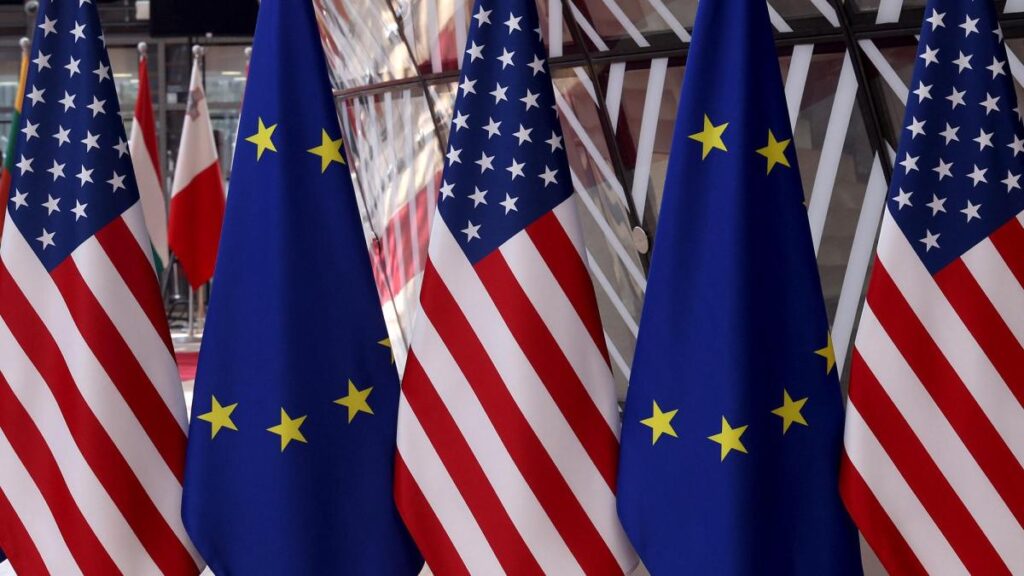Background on the Situation
In recent months, tensions between the European Union (EU) and the United States escalated due to trade disputes. Former U.S. President Donald Trump imposed tariffs on EU goods, prompting the EU to prepare a list of retaliatory measures. This list included $109 billion worth of U.S. products such as soja, aircraft, and vehicles.
Negotiations Leading to an Agreement
After months of challenging negotiations, the EU and the U.S. reached a trade agreement in late July. The deal established a 15% tariff on European products exported to the U.S.
EU Suspends Retaliatory Measures
On Tuesday, the European Union announced that it would suspend its retaliatory measures due to the newly reached trade agreement. The suspension was confirmed by Olof Gill, the spokesperson for the European Commission.
“The European Commission adopted today the necessary legal procedure to suspend the implementation of our EU countermeasures,” Gill stated.
Conditional Suspension
However, the EU has not ruled out reactivating these measures should tensions with the Trump administration resume.
“We’re putting these measures on hold, but we can always take them off again,” explained an anonymous European official.
Impact and Future Implications
The EU’s decision to suspend retaliatory measures is a significant step towards improving transatlantic trade relations. The agreement reached between the EU and the U.S. aims to reduce tariffs on various goods, fostering economic cooperation and growth.
The suspension of these measures also signals the EU’s commitment to resolving trade disputes through diplomatic negotiations rather than escalating tensions with unilateral tariffs.
Key Questions and Answers
- What were the retaliatory measures the EU was preparing? The EU had prepared a list of $109 billion worth of U.S. products, including soja, aircraft, and vehicles, to be taxed if no trade agreement was reached with the U.S.
- What was the outcome of the negotiations between the EU and the U.S.? Both parties agreed on a trade deal that established a 15% tariff on European products exported to the U.S.
- Why did the EU suspend its retaliatory measures? The EU suspended these measures following the new trade agreement with the U.S., aiming to improve transatlantic trade relations.
- Could the EU reactivate its retaliatory measures? Yes, the EU has not ruled out reactivating these measures should tensions with the U.S. administration resume.






